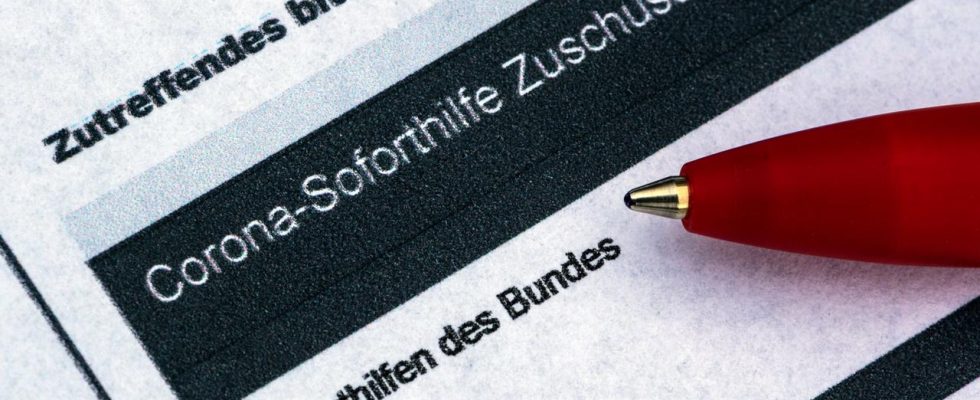During the pandemic, the state paid aid to many small and medium-sized companies. Now the deadlines for repayment are running out – for many new existential problems.
If she had known that she would have to repay the Corona aid, Marcella Manz would probably never have applied for it: “It was communicated differently than it is now interpreted afterwards,” says the hairdresser from Weingarten in Upper Swabia. Like her, many self-employed people or owners with a small business and few employees assumed in 2020: There is non-binding, fast and unbureaucratic help. Now she has to pay back 15,000 euros.
Does a bookseller have to close down?
In Baden-Württemberg, the repayment period for Corona aid from 2020 has just expired, in other federal states it has been extended again in some cases. North Rhine-Westphalia, for example, has declared November 30, 2023 as the deadline. With the help of a lawyer, hairdresser Manz has lodged an objection to the repayment. If necessary, she says, she would sue.
A bookseller from Mannheim is even threatened with closure: If she really has to pay back the aid, she doesn’t know whether she can continue to operate her shop at all, says Barbara Waldkirch im SWR. In 2020, after being forced to close due to the pandemic, the goods just ordered were piling up – as is the case with many stores across the country. When she was then at least allowed to sell books out of the window, this brought temporary support from customers and thus relief in the pandemic. But that, of all things, could spell doom for her shop.
Why does the aid have to be repaid?
Because the Corona aid was only intended to prevent insolvencies. If companies generated income during the period, this was subsequently offset against the subsidies. In the case of the bookseller, the income has retrospectively reduced the entitlement to funding. By then, however, she had already spent the last cent of the state support.
But why does the money from the “Corona emergency aid program” have to be repaid at all? Didn’t politicians originally promise quick and unbureaucratic help? At the time, the website of the responsible Ministry of Economic Affairs in Baden-Württemberg said: “In principle, the emergency aid does not have to be repaid if the relevant information in the application was correct and complete and truthful.” However, the next paragraph also says: “Should the anticipated liquidity bottleneck applied for […] retrospectively proved to be too high, the resulting surplus must be repaid.”
A third does not respond demand for payment
The money was intended for liquidity bottlenecks. Businesses or the self-employed should only use it if there is a risk of insolvency temporarily – not for other running costs, which is difficult to distinguish, especially for the self-employed. It was also clear “that the programs were neither suitable for fully cushioning the economic impact, nor for fully offsetting the personal or business challenges that had arisen,” said Nicole Hoffmeister-Kraut, Minister for Economic Affairs.
According to the ministry, around 85,000 entrepreneurs and the self-employed were asked to repay the Corona aid in Baden-Württemberg alone. Not even half of them complied with this request, although the deadline has now expired. A good third did not report back at all. And 11,000 affected people have objected to the payments, like hairdresser Manz.
Funding period should have been more flexible
In any case, the Chamber of Industry and Commerce does not want to speak of misleading. The IHK Heilbronn-Franken is responsible for the topic in Baden-Württemberg. “Right from the start of the program, it was communicated that the aim was to promote a liquidity bottleneck that was first to be forecast and then to be checked,” it said on request. The chambers had worked with the Ministry of Economic Affairs to ensure that the Corona aid had to be repaid as late as possible. The federal government had also extended the deadlines for billing its bridging aid.
But what the chambers of commerce could not achieve: making the funding period more flexible. In this way, companies could have adjusted the funding period precisely to actual liquidity bottlenecks and did not have to offset the aid against income. For hairdresser Marcella Manz, one thing is certain: If there was an emergency like the pandemic again, she would no longer apply for government support. She would see that she somehow manages to do it on her own.

